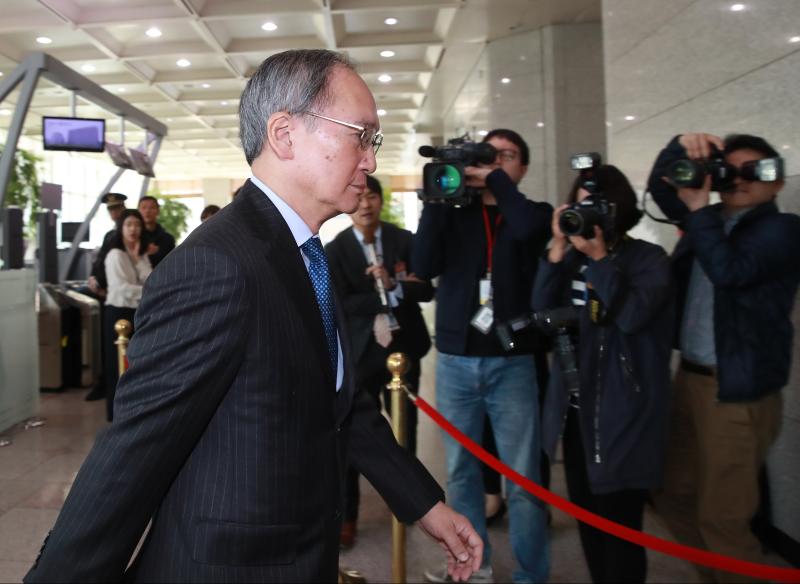Seoul flays Tokyo over disputed island claims in textbooks
Sign up now: Get insights on Asia's fast-moving developments

Japanese Ambassador to South Korea Yasumasa Nagamine is called into the foreign ministry in Seoul on March 30, 2018, for South Korea to lodge a protest against Japan's repeated claims on Liancourt Rocks, known as Dokdo in South Korea.
PHOTO: EPA-EFE
Follow topic:
SEOUL (AFP) - South Korea summoned Tokyo's ambassador on Friday (March 30) to protest over new educational guidelines requiring high school students to be taught that disputed islands belong to Japan.
Seoul has controlled the islets in the Sea of Japan (East Sea) since 1945, when Tokyo's brutal colonial rule on the peninsula ended.
Tokyo also claims the islands, known in Dokdo in South Korea and Takeshima in Japan, accusing Seoul of occupying them illegally.
South Korea and Japan are both market economies, democracies and US allies, and both are threatened by nuclear-armed North Korea, but their relationship is heavily strained by historical and territorial issues.
Tokyo on Friday approved guidelines requiring high school textbooks and teachers to tell pupils that the islands are Japan's, mirroring measures applied last year in elementary and middle schools.
The guidelines, which are available on the ministry's website, say schools should "introduce issues involving our country's territories, such as the Takeshima islands and Northern Territories, being our country's own territories".
The assertion was "unjustifiable", Seoul's foreign ministry said in a statement, saying Dokdo was an "inalienable" part of South Korea's territory.
"We strongly condemn it and sternly call for its immediate withdrawal," it added, saying Tokyo was trying to "instil a distorted historical perception about Dokdo into future generations".
Japan is embroiled in a separate dispute with China over another set of islands, about which the guidelines said schools should "cover the Senkaku islands as our country's own territories and that there is no issue of territorial sovereignty to be resolved".
Seoul and Tokyo tried to resolve a long-running feud over Japan's wartime sexual slavery of Korean women with an inter-government agreement in 2015.
The controversy of the so-called comfort women - those forced into sexual slavery for Japanese troops during World War II - has marred relations between the two countries for decades.
Earlier this month, South Korean President Moon Jae In said Japan cannot unilaterally declare the issue "over", repeating calls for Tokyo to apologise.
Japan has protested against changing the deal, which was agreed to by Moon's predecessor Park Geun Hye, saying any attempt to modify or scrap it could negatively affect relations.

